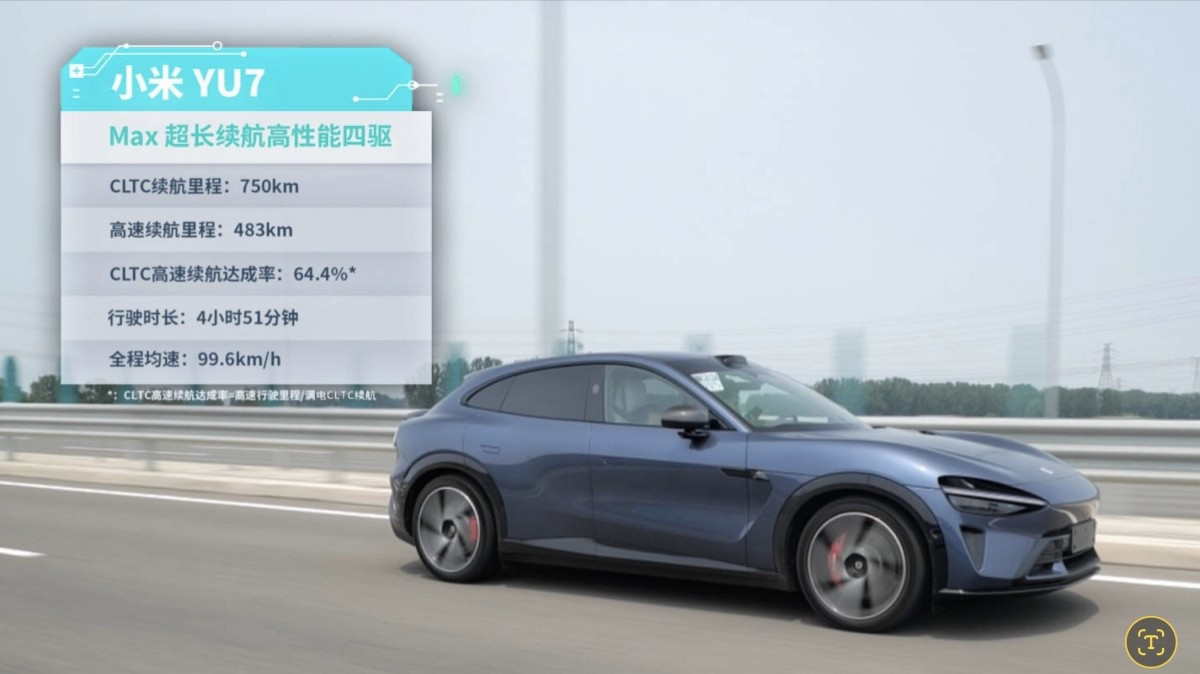Xiaomi YU7 Max Real-World Highway Range Test Falls Short of Official Claims
The Xiaomi YU7 Max has been making headlines for its sleek design, cutting-edge technology, and performance specs. However, a recent independent real-world highway range test reveals a gap between its official range figure and what drivers can actually expect on the road.
Conducted by Chinese media outlet Sohu, the test took the top-spec Xiaomi YU7 Max—equipped with a 101.7 kWh battery and dual-motor all-wheel drive—on a simulated road trip to measure true highway range. The car is officially rated for 750 km of range under China’s CLTC cycle, but real-world numbers tell a different story.
During the test, the car was driven at a steady 99.6 km/h on an 84 km highway loop, carrying two passengers, with the AC set at a comfortable 24°C. The vehicle featured 21-inch wheels fitted with Michelin Primacy 5 Energy tires, all in line with maximizing efficiency. Ambient temperatures hovered around 30°C, which are ideal conditions for EV performance.
Despite these favorable factors, the YU7 Max only managed to cover 483 km before showing zero range, achieving just 64.4% of its claimed range. Pushing the car beyond zero, the testers squeezed out an additional 9 km before the vehicle shut down, resulting in a total "dead-on-the-road" range of 492 km—about 65.5% of the official CLTC figure.
While this may seem disappointing at first glance, it’s a common trend among EVs, especially under more demanding highway conditions where energy usage is higher than during city driving or lab-controlled tests. In fact, the results place the YU7 Max in the average range performance category among other electric vehicles Sohu has tested.
On a more positive note, the YU7 Max delivered impressive charging performance. Using a high-powered DC fast charger, it went from 0% to 100% in just 37 minutes. From 5% to 70%, it maintained a consistent 300 kW charge rate, which is among the fastest in the industry. The total energy received during charging was 108.70 kWh, translating to an energy consumption rate of 22.1 kWh/100 km including charging losses—slightly above the car’s internal trip computer reading of 20.2 kWh/100 km.
Interestingly, these results contrast with earlier claims from Xiaomi CEO Lei Jun, who said he drove the standard YU7 from Beijing to Shanghai (1,300 km) with just one charging stop. Achieving that feat would have required significantly lower speeds or much longer charging sessions than most drivers typically prefer.
The takeaway for prospective EV buyers? Be wary of CLTC range figures, as they often represent ideal lab conditions, not real-world scenarios. The Xiaomi YU7 Max is still a solid performer, especially in terms of charging speed, but drivers should manage expectations when it comes to highway driving range.









Post a Comment